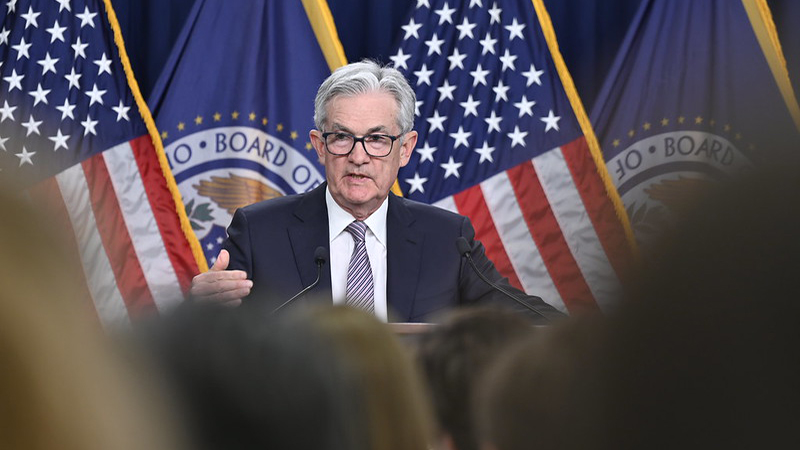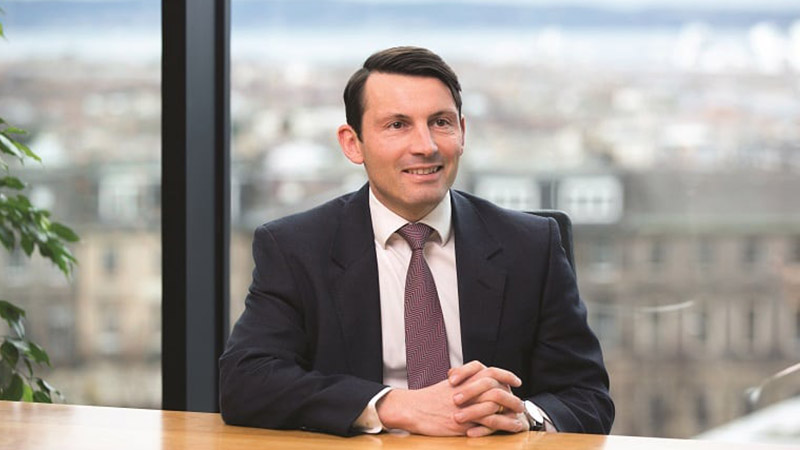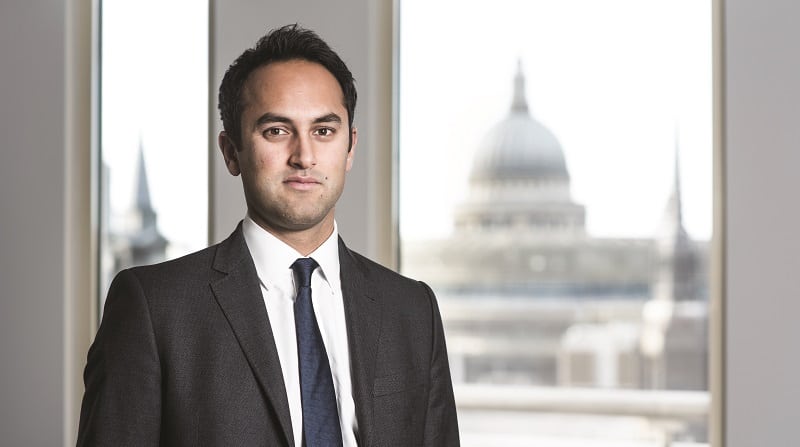Running an £80m fund at the tender age of 33, Blake Hutchins could be considered something of an early achiever in the world of fund management.
The manager of the Investec UK Equity Income Fund, which is approaching its three-year anniversary, has progressed quickly through the ranks since joining Morley Fund Management – now Aviva Investors – on the graduate scheme in 2007.
Hutchins spent four years in Morley’s UK equities team led by David Lis. Here he worked alongside several other heavyweights in the space, including Dan Roberts, Richard Colwell and Chris Murphy.
It wasn’t long before he was taken under the wing of Simon Brazier at Threadneedle as deputy manager of the UK Alpha Fund, where for three years from 2011 he helped manage about £8bn in institutional assets and ran the UK Overseas Earnings Fund.
When Brazier left Threadneedle for Investec in 2014, Hutchins, his protégé, soon followed, as well as analysts Ben Needham and Anna Farmbrough, and product specialist Neil Finlay.
Hutchins says of Brazier: “He has been a big sponsor in my career and I think young fund managers need sponsors. Of course, he wants to be successful but he also wants people to be successful with him and in that he differs a lot from other fund managers; many stars have not always been so good at bringing on young talent.”
But while the pair have a similar philosophy on equities, Hutchins says they differ on portfolio construction, with Brazier running what Hutchins terms a more “diversified core fund”. However, Hutchins says this difference in style is complementary.
Not long after joining Investec, Hutchins was given the UK Equity Income Fund to run. Until that point, in January 2015, he had not run income money despite always wanting to. In fact, Hutchins recalls a time at Aviva Investors when he presented a proposal to his then boss, David Lis, to run an equity income fund in the exact same way he runs his fund today.
“I still have that document and I still show it to people internally, just to show them that is where my passion is,” he says.
This sporting life
This passion is something Hutchins developed long before stepping through the door at Aviva Investors. Coming from a family of professional tennis players has helped him develop the focus and discipline required to manage money, particularly with an income slant.
His father, brother and sister were all world-ranked tennis players. His father, Paul, enjoyed a 13-year run as Davis Cup captain for Great Britain and his brother Ross also represented his country in the same prestigious tournament, as well as at several Grand Slams.
Hutchins, himself a useful tennis player in his youth, says: “As a junior, tennis was my big passion. I learned a lot about competing and dealing with wins and losses, so I’ve always had a good perspective.
“That has taught me to have a long-term focus on investment and not to get carried away with the latest win. You are not a loser when you have a few bad investments and you are not a hero when you have a few good ones.”
Indeed, drawing a parallel between fund managers and tennis stars, Hutchins believes all the hours spent on the tennis court primed him for a “more compounding investment style”.
He adds: “Rafa Nadal finished the year as the number one tennis player in the world and that is objective, he has won the necessary tournaments; there is no subjectivity. It is the same in fund management, the best fund managers are judged by their performance over a long period of time.
“We live and die by our long-term performance. You have to be comfortable being exposed to that.”
Hutchins’ fund has delivered 12.3%, 3.3% and 1.3% over one year, six months and three months, respectively, versus the IA UK Equity Income sector’s 11.3%, 5.6% and 3%. The fund was on the verge of securing its three-year performance figures at the time this article was written.
Hutchins is a self-professed “risk-averse” investor, believing in the steady compounding of good companies and protecting capital on the downside.
The fund holds 40 stocks, 15% of which are listed overseas (maximum 20%), including Microsoft which is about 3% of the portfolio and Finnish elevator firm Kone. Hutchins believes his role as co-manager on the Investec Global Quality Equity Income Fund, alongside Clyde Rossouw and Abrie Pretorius, puts him in good stead to pick global stocks.
Time for caution
Hutchins says he is not overly optimistic about the prospects for the UK economy given that Brexit is obviously front and centre of everyone’s minds.
“Even if we do get a transition agreement in place I think it’s a long old slog,” he adds. “We have had a good recovery, the last recession was nine years ago and we are in the second longest bull market in history, so I think we are closer to the end of the cycle than we are to the beginning of the last. Inherently, that leads me to be more cautious.”
But there is a glimmer of hope in that the economy is not representative of the stock market. While Hutchins believes all asset classes are reasonably fully valued, he feels it is possible to find companies that can compound and grow cashflow, and which don’t rely on macro tailwinds or whether the UK is in or out of the EU: namely what he calls “change” businesses.
The portfolio is split, with two-thirds “pure quality” businesses and a third “change” businesses. Names in the former camp include Diageo, Reed Elsevier and Hargreaves Lansdown, companies he believes have the best business models and capital allocation, and trade at valuations that enable them to grow and compound cashflows and dividends.

Change businesses, on the other hand, are those recovering from a difficult period and undergoing a positive change in the investment case to make them attractive again. This could be where a new management team has come in and simplified the business, such as at Essentra.
Another example of a change business is Rolls-Royce. While the company is not currently generating a penny of free cashflow, it is in the process of developing three engine programmes that Hutchins believes should yield more than £1bn of free cashflow once completed in three to five years’ time.
“Those turnarounds often tend to be under-appreciated in the short term by investors,” he says, “but if you can take a medium to long-term view, you see this company is not going to be hitting its straps in the next year, but in the medium term there is recovery potential in that share.”
Avoidance tactics
Hutchins avoids businesses that operate with financial leverage and commodity producers. Those on the blacklist at present include oil & gas, mining and utility companies, as well as telecoms businesses and banks. He is currently drawn to capital-light sectors such as consumer staples, media, industrials, financials – excluding big banks or insurers – and software and healthcare.
He is also wary of sectors where he thinks certain companies are generating unsustainable earnings and trading on artificially low price-to-earnings ratios. One case in point is the housebuilders.
“They are currently making unbelievably high levels of profitability and return on capital and I worry that is not sustainable. We don’t own any.”
Hutchins’ concern stems from the wider trend of investors blindly chasing yield and piling into the wrong type of firms.
He adds: “When the market re-rates we have to be prepared to accept a lower starting dividend yield. If you only pick high-yielding stocks you run the risk of investing in companies that are paying unsustainable dividends – like housebuilders – or companies that do not have any future growth, such as the oil majors.”

Hutchins firmly believes his fund could grow to several billion under management, but why, at £80m, is he not taking advantage of the ability to be nimble and investing more in small and mid-cap companies and trading more?
“I disagree that I should be doing either of those things,” he says. “We are trying to build something that is absolutely sustainable as we scale, so the fund is 70% FTSE 100 with the remainder in FTSE 250 and small cap, and we are always going to be positioned that way to allow it to be scalable.”
The fund does not invest in companies with a market cap below a few hundred million. The smallest company in the portfolio is UK carpet distributor Headlam Group.
Looking ahead, Hutchins wants to continue growing the fund and finding people to invest alongside. Most importantly, however, he wants to deliver strong performance, grow dividends and outstrip inflation by investing in companies that can grow their dividends faster than the market.
“I would love nothing more than to be sitting here in 10, 20, 30 years’ time having grown the assets of the fund, having grown the dividend and delivered resilient and attractive returns over the long term,” he says.
“I am lucky, I have been given the fund I want to run for the rest of my career reasonably early on in my career.”
Fund picker’s view – Peter Lowman, chief investment officer, Investment Quorum
The fund was launched in January 2015, so it only has a brief history of performance and credit ratings. Clearly, the IA UK Equity Income sector has some exceptional funds and fund managers which this will be competing against, but the fund is currently ranked in the second quartile while being fourth quartile over three and six months.
In respect to the fund’s investment objectives, the aim is to provide unitholders with income as well as capital growth, markets prevailing, by investing primarily in UK equities. The fund yields approximately 2.7% at present.

Looking at the current portfolio, the fund’s top five sector weightings are 34% in consumer goods, 16% consumer services, 12% industrials and 10% in healthcare and financials. Its top five holdings are British American Tobacco, Diageo, Glaxosmithkline, Unilever and Imperial Brands.
To conclude, the fund is relatively new, only has a one-year track record and is a modest £84m in size, which might be an issue for some fund selectors. However, Blake has had a steady start and could be a worthwhile option for any investor that is looking for exposure to the UK equity income sector.











